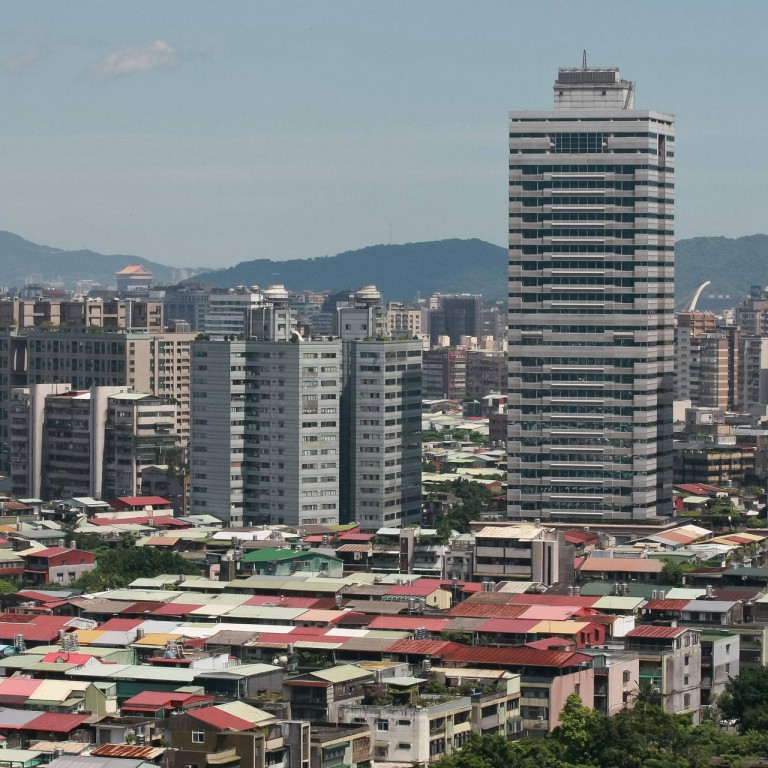
Taipei home prices rise beyond the reach of young people
First-time buyers shut out of Taipei market after low mortgage rates fuel surge in housing costs
High school teacher Huang I-chung said he had hunted in vain for a home in Taipei's soaring market for four years, convinced that owning a flat could help him find a wife.

First-time buyers like Huang have been shut out of the market after home prices in Taipei almost tripled in the past 10 years, spurred by low mortgage rates.
With elections in November, Taiwan's ruling party has put access to housing near the top of its agenda. President Ma Ying-jeou has proposed building more affordable housing, and increasing taxes for non-owner-occupied homes to curb speculators.
"It's a consensus that young people can't afford to buy a home," said Stanley Su, an analyst at Sinyi Realty, Taiwan's only listed real estate broker. "The ruling party must respond to these concerns, and the opposition will have its own ideas, so inevitably there will be policy speculation. The property market will cool."
Taipei sits at the northern tip of Taiwan. The bustling, dense capital city is a mix of old, low-rise buildings and modern office towers, including Taipei 101, the world's third-tallest building. The population of Taipei and New Taipei City, a municipality surrounding the capital, has grown to 6.64 million.
Taiwan's housing market surged after the government relaxed rules that prompted locals to repatriate more income from the mainland, and the central bank lowered borrowing costs to buoy the economy. It grew an average 3.3 per cent annually since the 2008 financial crisis, compared with 4.6 per cent in the previous five years.
As bond yields and deposit rates tumbled, Taiwanese who had accumulated wealth during the 1990s technology boom poured their savings into real estate, driving up prices.
Record-low mortgage rates have also spurred housing gains. The average rate in Taiwan fell 51 basis points, or 0.51 percentage point, over the past decade to 1.96 per cent in April, according to central bank data.
As quarterly economic growth slowed in the first three months of the year, hurt by weaker demand for exports, the housing market also began to cool.
Transaction volumes declined 14 per cent to 8,214 compared with the previous period, while Taipei's property prices slipped 1.3 per cent, according to Sinyi Realty.
The average price for a residential unit was about NT$22.2 million at the end of March, according to Sinyi Realty. The average size was 1,170 sq ft.
The legislature took action last month to deter speculation, raising the maximum property tax rate on non-owner-occupied homes to 3.6 per cent from 2 per cent.
Finance Minister Chang Sheng-ford said last month the government might "strengthen" property taxes and expand the tax base with a focus on luxury developments.
"Taipei's property market is starting to gradually dip, and the momentum to rise further has weakened," he said at a media briefing in Taipei.
Cliff So, an executive director of REPro Knight Frank, attributed the property market's surge to more funds coming back to the island from the mainland and a cut in estate taxes.
Home prices have jumped so much that Huang, even with a monthly salary from teaching that is twice Taiwan's average, cannot compete with rival bidders. He lost out when his NT$7.5 million offer for a one-bedroom unit was trumped by a NT$8.25 million bid. Huang thought the apartment would be cheaper as the building was about 20 years old, he said.
Huang founded a group early this year to fight for affordable housing. His organisation, the Taiwan Adequate Housing Association, educates people about housing policies and lobbies lawmakers and government officials. In October, it plans to stage an overnight sleep-in next to a luxury development to protest against rising property prices.
"Taiwan's young people have learned one thing recently: if we fight, there's a chance of things changing," said Huang, who is still looking for a bride. "But I'm going to try to persuade my next girlfriend to accept that I may rent and not buy an apartment for now."

